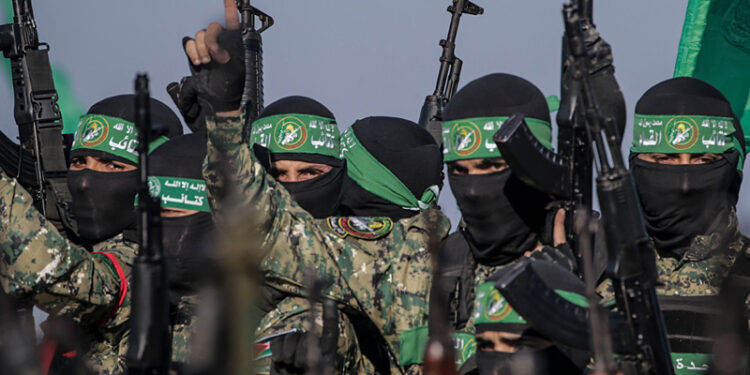Hamas has stated that it is reviewing what US President Donald Trump has labelled a “final” ceasefire proposal for Gaza, while emphasizing that any agreement must include a total withdrawal of Israeli forces from the territory.
On Wednesday, the Palestinian group confirmed it is “evaluating” the latest proposals from mediators Egypt and Qatar. However, it maintained that any arrangement must “guarantee an end to the war and an Israeli exit from Gaza.”
This announcement follows President Trump’s claim on Tuesday that Israel had accepted the necessary terms for a 60-day ceasefire after a “long and productive” meeting with US and Israeli officials.
In his first public comments since Trump’s announcement, Israeli Prime Minister Benjamin Netanyahu reaffirmed his government’s hardline position, asserting that the destruction of Hamas is non-negotiable.
“There will not be a Hamas. There will not be a Hamastan. We’re not going back to that. It’s over,” Netanyahu stated during an event organised by the Trans-Israel pipeline.
Despite the firmly held positions, Trump’s announcement has raised cautious optimism among some Gazans. Kamal, a resident of Gaza City, told reporters over the phone, “I hope it would work this time, even if for two months, it would save thousands of innocent lives.”
Conversely, others remain sceptical. Adnan Al-Assar, speaking from Khan Younis in southern Gaza, stated, “We hope he is serious like he was serious during the Israeli-Iranian war when he said the war should stop, and it stopped.”
The nearly two-year conflict has had a devastating impact on Gaza and has escalated domestic pressure on Netanyahu to achieve a permanent ceasefire—an idea fiercely opposed by hardliners within his right-wing coalition.
Meanwhile, a recently brokered truce between Israel and Iran, following last month’s 12-day escalation, along with strikes on Iranian nuclear facilities, has intensified pressure on Hamas—backed by Tehran.
Israeli Foreign Minister Gideon Saar indicated that a majority within the coalition would support an agreement that ensured the release of the remaining hostages held by Hamas.
“If there is an opportunity to do so – we must not miss it!” Saar wrote on X. Of the 50 hostages believed to be in Gaza, about 20 are thought to be alive.
Israeli opposition leader Yair Lapid has also offered political backing for any agreement, stating that his party could provide a parliamentary “safety net” should Netanyahu’s cabinet face internal dissent.
Lapid’s commitment not to support a no-confidence vote could help sustain Netanyahu’s coalition in the event of resistance from far-right members opposed to a ceasefire.










